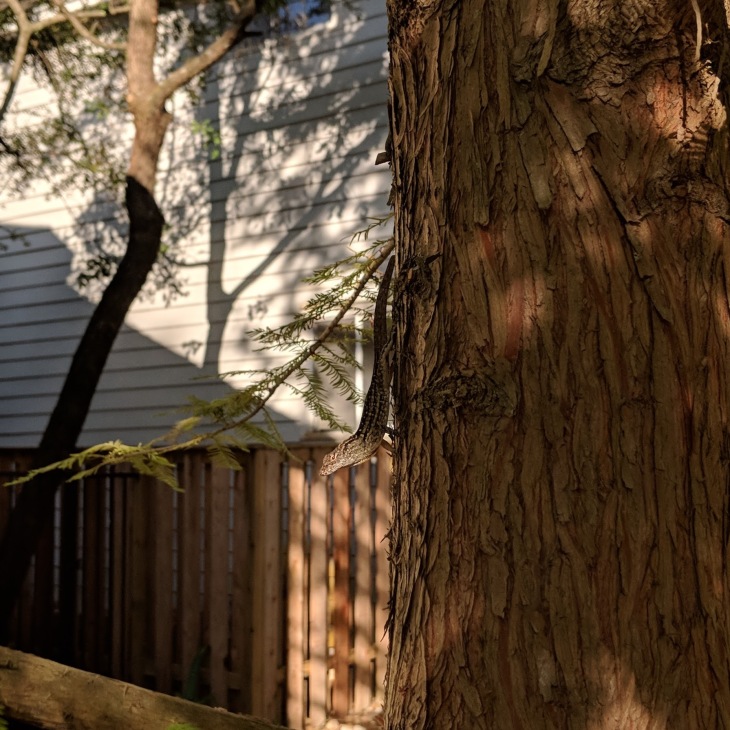
A few years ago I read that the cypress tree swamps were being clear cut for mulch. I haven’t purchased mulch since. In the areas under trees I let the leaves and pine needle accumulate. In the other areas I turned to rock.
A garden with out mulch in Houston is a doomed garden. With out mulch the summer sun will bake every thing to a crisp or a heave downpour will wash away your plants and soil.
Rock mulch builds up heat during the day, slowly releases it at night keeping the soil and plants at more moderate temperatures. It made a noticeable difference during the late frost we had in 2019.
It lets water run through to the soil under the plants and slows evaporation, prevents erosion and most important – it doesn’t need to be replaced every year.
Little did I know that the people on Easter Island used rocks to keep their gardens going as the environment deteriorated. The technical term is Lithic-Mulch, which translates to …. rock mulch.
There are many benefits to rock mulch, more so in dry areas. Previous cultures used it in New Mexico and Arizona. If you’ve live in Houston long you know we switch between decades of drought and decades of downpours. Rock mulch works for both.
Sometimes holes are dug, lined with rocks or small walls built around plants. This protects the plants from strong winds and provides a little shade. Another option is a layer of rocks is placed over the soil the same as is done with mulch.
A taller pile of rocks on the south side of a plant (Talus garlands) can protect young trees or shrubs. The pile of rocks provides shade, condenses water at night to add to soil, keeps weeds under control, keeps critters from digging and provides wind protection.
Zero water garden using rocks and holes (Xerophiles)
Becoming Xerophile
The Nature, History, and Distribution of Lithic Mulch Agriculture
Easter Islands Ancient Gardening Practices
Growing Fruit Trees in Drought Areas




You must be logged in to post a comment.